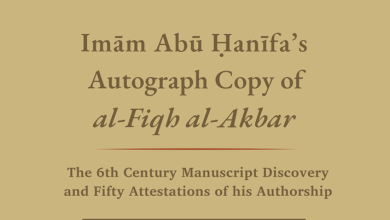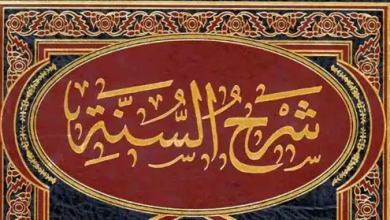The Hadiths Cited by the Early Hanafi Fuqaha
Some people have the misunderstanding that the early Hanafī scholars whose books are in wide use today, like Shams al-A’immah al-Sarakhsī (d. 490 H), Malik al-‘Ulamā’ al-Kāsānī (d. 587 H) and Burhān al-Dīn al-Marghīnānī (d. 593), were unacquainted with hadīth. They base this on the absence of many hadīths quoted in their works in the available hadīth collections or their apparent weakness. These early scholars, however, took hadīths not only from the well-known collections, but also from the works of the earlier Hanafī ‘ulamā’, many of which have not reached us today. The narrations are found in these earlier works generally with their full chains of transmission. Hence, one may not dismiss the hadīths mentioned in al-Hidāyah, al-Mabsūt, al-Badā‘i’ etc. as baseless or forged merely on the grounds that they are not found in the available collections of hadīth.
‘Allāmah ‘Abd al-Rashīd al-Nu‘mānī (d. 1420 H) writes:
That which our Fuqahā’ – may Allāh have mercy on them – cited of hadīths and narrations in their works without describing a sanad or a source, as al-Sarakhsī (d. 490 H) does in al-Mabsūt, al-Kāsānī (d. 587) in al-Badā’i‘ and al-Marghīnānī (d. 593 H) in al-Hidāyah, these are hadīths and narrations which they found in the books of our early Imāms like al-Imām al-A‘zam (d. 150) and his two students [Abū Yūsuf and Muhammad], Ibn al-Mubārak (d. 181 H), al-Hasan al-Lu‘lu’ī (d. 204 H), Ibn Shujā‘ al-Thaljī (d. 267 H), ‘Īsā ibn Abān (d. 221), al-Khassāf (d. 261 H), al-Tahāwī (d. 321 H), al-Karkhī (d. 340 H) and al-Jassās (d. 370 H) – may Allāh (Exalted is He) have mercy on them.
Then those who sourced al-Hidāyah, al-Khulāsah and so on appeared, and they searched for these narrations in the records [of hadīths] compiled after [the year] 200 by the scholars of hadīth, and when they did not find [them] in them, they assessed them to be ‘strange’.
Some hold a bad opinion about these Imāms of the Fuqahā’, and attribute to them little knowledge of hadīth, and far-removed are they from that! How many a suspended hadīth (ta‘līq) there is of al-Bukhārī in his Sahīh on which the like of Ibn Hajar said: ‘I did not find it’, so will that which is suspected of our Hanafī masters be suspected of al-Bukhārī?! Rather, al-Sarakhsī, al-Kāsānī and al-Marghīnānī relied in this subject on their Imāms who are recognised for [their] retention (hifz), trustworthiness (thiqah) and reliability (amānah), just as al-Baghawī relied in his Masābīh on the authors of the well-known collections.
The Hāfiz of his time, Qāsim ibn Qutlūbughā (802 – 879 H), said: “The early ones from our [Hanafī] scholars – may Allāh have mercy on them – would dictate juristic rulings and their evidences from the prophetic hadīths with their chains, like Abū Yūsuf in Kitāb al-Kharāj and al-Amālī; Muhammad in Kitāb al-Asl and al-Siyar; and likewise al-Tahāwī, al-Khassāf, [al-Jassās] al-Rāzī, al-Karkhī except in the Mukhtasars. Then those who depended on the books of the early ones came and cited the hadīths in books without clarifying the chain or the source.” (Munyat al-Alma‘ī, p. 9)
Had we wished, we would have cited many examples for you from the examples of these hadīths which those that sourced them assessed them to be ‘strange,’ while they are found in the book al-Āthār, for example, but space does not allow it.” (Al-Imām Ibn Mājah wa Kitābuhu l-Sunan, pp. 73-4)
The hadīth master and faqīh, ‘Allāmah Qāsim ibn Qutlūbughā, compiled Munyat al-Alma‘ī as an index of hadīths which al-Zayla‘ī and/or Ibn Hajar al-‘Asqalānī could not locate in their respective works on sourcing the hadīths of al-Hidāyah, but which upon further inspection have been found to have a source. Here are a few examples:
- The author of al-Hidāyah quoted the hadīth, “When the sun deviates [from its midpoint], then offer the Jumu‘ah prayer with the people.” Hāfiz al-Zayla‘ī said: “Strange”, meaning he could not locate it. Hāfiz Qāsim ibn Qutlūbughā replied: “Rather, Ibn Sa‘d narrated it in al-Tabaqāt from the hadīth of Mus‘ab ibn ‘Umayr.” (Munyat al-Alma‘ī, p 31)
- The author of al-Hidāyah quoted the hadīth, “When you see anything of these horrors, take recourse to Allāh with supplication.” Hāfiz al-Zayla‘ī said: “Strange with this wording.” ‘Allāmah Qāsim replied: “Muhammad ibn al-Hasan narrated it in al-Asl from the mursal of al-Hasan [al-Basrī].” (Munyat al-Alma‘ī, p 32)
- The author of al-Hidāyah quoted the hadīth, “There is no marriage except with witnesses.” Hāfiz al-Zayla‘ī said: “Strange,” and Hāfiz Ibn Hajar al-‘Aqalānī said: “I have not seen it with this wording.” ‘Allāmah Qāsim replied: “Muhammad ibn al-Hasan mentioned it as what reached him, and al-Khatīb narrated it from the hadīth of ‘Alī.” (Munyat al-Alma‘ī, p 40, 60)
- The author of al-Hidāyah mentions that Sa‘īd ibn al-Musayyib narrated that the Messenger of Allāh (Allāh bless him and grant him peace) ordered the freeing of umm al-walads (female slaves who bore their masters’ children) and that they are not to be sold. Hāfiz Ibn Hajar said: “I did not find it.” ‘Allāmah Qāsim replied: “Muhammad ibn al-Hasan narrated it in al-Asl.” (Munyat al-Alma‘ī, p 61)
- It is mentioned in al-Hidāyah that ‘Alī (may Allāh be pleased with him) gave the decree that if a woman besides one’s wife is brought to him and he is informed that this woman is his wife and he has intercourse with her, then there is no punishment on him but he must give her dowry. Hāfiz Ibn Hajar said: “I did not find it.” ‘Allāmah Qāsim replied: “‘Abd al-Razzāq [al-San‘ānī] narrated it.” (Munyat al-Alma‘ī, p. 61)
Amongst the reasons why some of the later muhaddithūn were unable to locate a hadīth is that the Fuqahā’ would at times narrate a (non-verbal) hadīth according to its implication and purport, and not in the exact words used by the narrator, as a result of which the muhaddithūn would mention that they could not locate it, although it is an established hadīth. One example is the statement of the author of al-Hidāyah: “The Messenger of Allāh (Allāh bless him and grant him peace) forbade tormenting animals.” Hāfiz Ibn Hajar said: “I did not find it.” ‘Allāmah Qāsim said in response: “The faqīh often mentions a hadīth according to [its] meaning, and al-Bukhārī narrated that the Prophet (Allāh bless him and grant him peace) forbade restraining animals.” (Munyat al-Alma‘ī, p. 61)
It should be noted that the hadīths which al-Zayla‘ī and Ibn Hajar could not locate are a relatively small number. Most of the hadīths mentioned by the author of al-Hidāyah, which number in the hundreds, have been sourced in Nasb al-Rāyah and al-Dirāyah to primary hadīth references.
Describing the rank of the author of al-Hidāyah in hadīth, Mawlānā Nu‘mānī wrote in a private letter to his student, Muftī ‘Abdul Mālik of Bangladesh:
It is to be noticed that al-Laknawī counted the author of al-Hidāyah from the group that are strangers to the knowledge of hadīth, and that is incorrect. How [can this be so] when the author of al-Hidāyah compiled a list of his teachers [in hadīth] from which al-Qurashī quoted in al-Jawāhir al-Mudiyyah in many places, and I quoted them in the footnotes of al-Dirāsāt…There are many beneficial points in the biographies of the teachers of the author of al-Hidāyah in al-Jawāhir. There is the chain of the author of al-Hidāyah and a mention of his reading of the two Sahīhs, Jāmi‘ al-Tirmidhī, Sharh Ma‘ānī al-Āthār of al-Tahāwī, the Masānīd of al-Khassāf and other [hadīth collections] to his teachers.
It is established that the author of al-Hidāyah only transmitted from the books of his predecessors from the muhaddithūn of the Hanafī Fuqahā’ as is clear from reading Munyat al-Alma‘ī. In al-Hidāyah there are hadīths from al-Asl of Imām Muhammad, and his Kitāb al-Āthār, and other books of the Imāms. [Some of] these books were not under the range of al-Zayla‘ī’s and Ibn Hajar’s reading.” (Al-Madkhal ilā ‘Ulūm al-Hadīth al-Sharīf, Markaz al-Da‘wat al-Islāmiyyah, p. 103)
He wrote to him in a further letter explaining that this rule only applies to the early Hanafī Fuqahā’ and not the later ones:
That which I mentioned regarding the author of al-Hidāyah only applies to him and other early Fuqahā’ who drew evidence from hadīths, like al-Sarakhsī and al-Kāsānī. The narrations they cite are not without basis. That which does not have a source from what they cite is from the category of some suspended narrations (ta‘līqāt) of Imām al-Bukhārī and some hadīths which Imām al-Tirmidhī alluded to with his statement, ‘And in the chapter is…’ which we do not find with a connected chain in the books of hadīths in circulation amongst us. This is only because many of the books of the early ones have been lost.
That which I have said only applies to the early Fuqahā’ because only they quote from the books of their Imāms, and that becomes clear from reading Munyat al-Alma‘ī. I do not say this about the later ones.” (Al-Madkhal ilā ‘Ulūm al-Hadīth al-Sharīf, p. 104)
Explaining ‘Allāmah Nu‘mānī’s statement that this rule should not be extended beyond the case under question, Muftī ‘Abd al-Mālik writes:
The intent of our teacher – may Allāh (Exalted is He) have mercy on him – is two things:
First, that a definite assessment of negation will not be made of that which is not found from their narrations because the great scholars who negated them [like Hāfiz al-Zayla‘ī and Hāfiz Ibn Hajar] were not free from rejoinders, so what about other than them?
Second, these Fuqahā’ will not be accused of ignorance of hadīth or of laxity in quoting it, due only to some of what they cited not being found, because of the possibility of their existence in the books of the earlier ones which have not reached us…
The Shaykh – may Allāh (Exalted is He) have mercy on him – does not intend to authenticate the suspended hadīths common in books of various sciences and disciplines of which no source for them is found due only to the aforementioned possibility, because that is not meant nor are they authentic.
In the words of our teacher, Shaykh Muhammad ‘Awwāmah in a similar context: “We do not affirm anything except with knowledge. And we are cautious in negating.” (Al-Madkhal ilā ‘Ulūm al-Hadīth al-Sharīf, p. 104)
Jalāl al-Dīn al-Suyūtī said:
The hadīth which al-Rāfi‘ī cited, we did not find a sanad for it. Nor is it found in the books of hadīth available now. The late Huffāz say of the like of this, “It has no basis.” The scrupulous [of them] suffice with their statement, “We did not find it,” which is better. It has reached me that Hāfiz Ibn Hajar was asked about these hadīths which our Imāms and the Hanafī Imāms cite in Fiqh [works] drawing evidence from them and are not known in the books of hadīth, so he answered: “Many of the books of hadīth, or most of them, have been lost in the eastern lands due to civil wars. Perhaps those hadīths were transmitted in them and they have not reached us.” (Quoted in Al-Madkhal ilā ‘Ulūm al-Hadīth al-Sharīf, p. 93)
Finally, Muftī ‘Abd al-Mālik mentions the following important point:
It should be known that the presence of some weak hadīths or hadīths that do not have a basis in some books of Fiqh does not depreciate the value of that Fiqh, because the weakness of these specific evidences which some of the later Fuqahā’ cite does not necessitate the weakness of the rulings for which the evidences were cited, because there may be other strong evidences in which there is no weakness or defect. This is the reality which those of the people of knowledge know who have acquaintance with the books of the Imām of the madhhab and the books of his students and those below them from the luminaries of the madhhab who combined between the sciences of transmission and comprehension. This issue was explained adequately by our teacher, Shaykh Muhammad ‘Awwāmah, in his book which is deserving of being written in gold: Athar al-Hadīth al-Sharīf fi Khtilāf al-A’immat al-Fuqahā’ (pp. 141-51). Were it not for the lengthiness of his discussion I would have quoted it in its entirety due to its richness and value.” (Al-Madkhal ilā ‘Ulūm al-Hadīth al-Sharīf, p. 104-5)
Compiled by Mufti Zameelur Rahman






